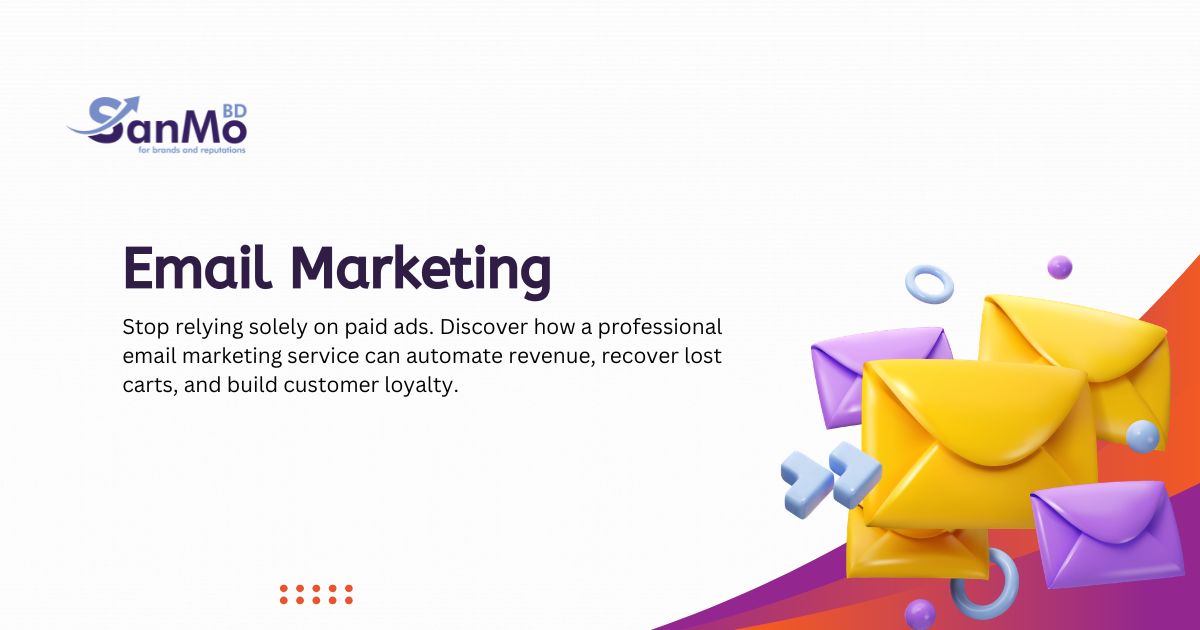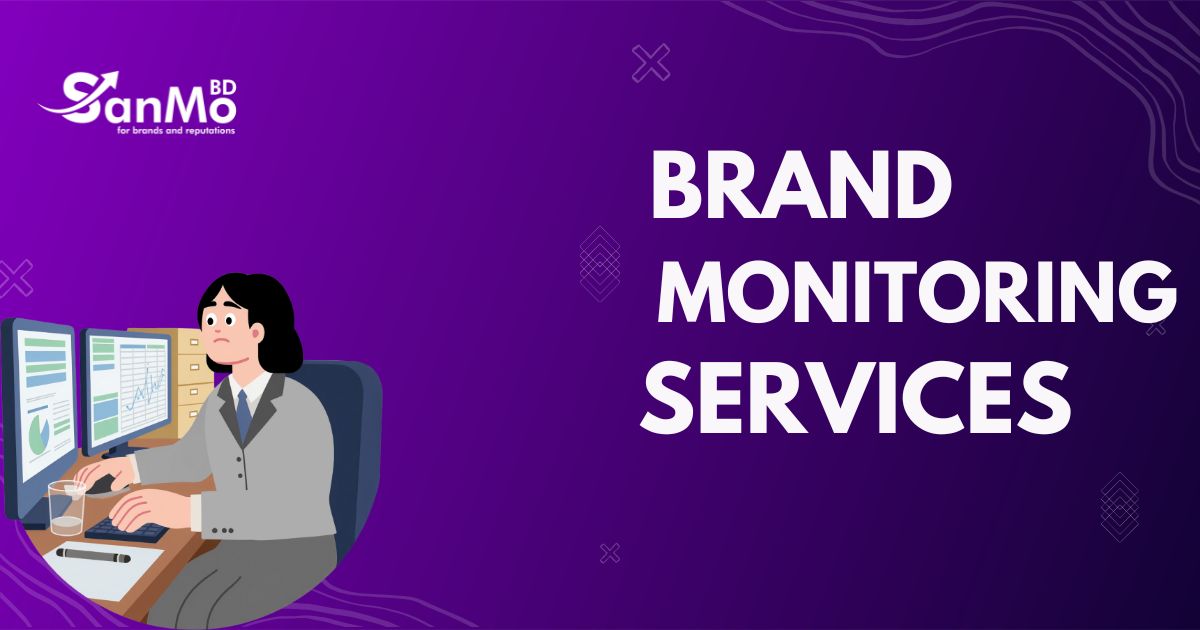Building an e-commerce website requires choosing the right foundation. Three dominant approaches have emerged: WordPress with WooCommerce, Shopify’s all-in-one platform, and custom-coded solutions. Each offers distinct advantages and challenges that can make or break your online business.
The platform you select will influence everything from your site’s performance and scalability to your long-term costs and marketing capabilities. Making the wrong choice could mean expensive migrations, limited functionality, or lost sales opportunities down the road.
This comprehensive guide examines each option through the lens of real business needs. We’ll explore cost structures, technical requirements, customization possibilities, and growth potential to help you make an informed decision that aligns with your business goals and technical expertise.
Understanding Your E-Commerce Platform Options
WordPress with WooCommerce
WordPress powers over 40% of all websites globally, making it the world’s most popular content management system. When paired with WooCommerce, it transforms into a robust e-commerce platform that combines flexibility with familiarity.
WooCommerce is a free plugin that adds comprehensive shopping cart functionality to any WordPress site. It handles product catalogs, payment processing, inventory management, and order fulfillment while maintaining WordPress’s signature ease of use.
The platform excels at content marketing integration, SEO capabilities, and customization through thousands of available plugins and themes. However, managing a WordPress e-commerce site requires ongoing maintenance, security updates, and technical oversight.
Shopify

Shopify operates as a fully hosted e-commerce solution, handling technical infrastructure while providing user-friendly tools for store management. The platform serves over one million businesses worldwide, from small startups to enterprise retailers.
All Shopify plans include hosting, security, payment processing, and core e-commerce features. The platform’s app ecosystem extends functionality through thousands of third-party integrations covering everything from email marketing to inventory management.
Shopify’s strength lies in its simplicity and reliability. Store owners can focus on products and customers rather than technical maintenance, making it particularly attractive for entrepreneurs without extensive technical backgrounds.
Custom Code Solutions
Custom development involves building an e-commerce website from scratch using programming languages like PHP, Python, JavaScript, or frameworks such as React, Angular, or Laravel. This approach offers unlimited flexibility but requires significant technical expertise and resources.
Custom solutions allow businesses to create unique user experiences, integrate with specialized systems, and optimize performance for specific use cases. Large enterprises often choose custom development when existing platforms cannot accommodate their complex requirements.
The trade-off comes in development time, costs, and ongoing maintenance requirements. Custom solutions demand dedicated development teams and substantial upfront investment, making them suitable primarily for businesses with specific technical needs and adequate resources.
Cost Analysis: Upfront Investment and Ongoing Expenses

WordPress with WooCommerce Costs
WordPress and WooCommerce are technically free, but running a professional e-commerce store involves several expenses. Domain registration costs $10-15 annually, while hosting ranges from $10-50 monthly depending on traffic and performance requirements.
Premium themes designed for e-commerce typically cost $50-200, while essential plugins for functionality like advanced SEO, backup solutions, or enhanced security add $20-100 annually each. Payment processing fees through services like PayPal or Stripe run 2.9% + 30¢ per transaction.
Total monthly costs for a WordPress e-commerce site typically range from $30-150, excluding transaction fees. However, costs can escalate quickly with premium plugins, managed hosting, and professional support services.
Shopify Pricing Structure
Shopify uses a straightforward subscription model with three main tiers. The Basic plan costs $39 monthly and includes essential features for new businesses. The Shopify plan at $105 monthly adds professional reports and lower transaction fees. Advanced Shopify costs $399 monthly and includes advanced report builder and third-party calculated shipping rates.
Transaction fees vary by plan level, ranging from 2.9% + 30¢ on Basic Shopify to 2.4% + 30¢ on Advanced Shopify. These fees are waived when using Shopify Payments, though standard credit card processing fees still apply.
Additional costs include premium themes ($100-350), paid apps ($5-300 monthly each), and professional services for customization. Most businesses spend an additional $50-200 monthly on apps and premium features beyond their base subscription.
Custom Development Investment
Custom e-commerce development requires significant upfront investment. Simple custom stores start around $15,000-30,000, while complex enterprise solutions can exceed $100,000. Development timelines typically span 3-12 months, depending on feature complexity and team size.
Ongoing costs include hosting ($50-500 monthly), maintenance and updates ($1,000-5,000 monthly), security monitoring, and feature enhancements. These recurring expenses often match or exceed the initial development investment over time.
However, custom solutions eliminate per-transaction fees and third-party subscription costs that can become substantial as sales volume grows. High-volume retailers may find custom development more economical long-term despite higher initial costs.
Technical Requirements and Maintenance

WordPress Technical Demands
WordPress requires regular maintenance including core updates, plugin updates, security patches, and database optimization. Sites typically need updates 2-3 times monthly to maintain security and performance standards.
Technical skills required include basic HTML/CSS knowledge, FTP access understanding, database backup procedures, and troubleshooting common plugin conflicts. While many tasks can be handled through the WordPress dashboard, some situations require command-line access or code editing.
Hosting requirements include PHP 7.4 or higher, MySQL 5.6 or higher, and at least 1GB of RAM for decent performance. SSL certificates are essential for e-commerce functionality and SEO rankings.
Many business owners outsource WordPress maintenance to agencies or freelancers, typically costing $50-200 monthly depending on service levels and site complexity.
Shopify’s Managed Approach
Shopify handles all technical infrastructure, security updates, and performance optimization automatically. Store owners never need to worry about server management, security patches, or software updates.
The platform maintains 99.98% uptime through its global content delivery network and automatically scales to handle traffic spikes during peak shopping periods. PCI DSS compliance is included, ensuring secure payment processing without additional configuration.
Technical requirements are minimal—store owners need only internet access and basic computer skills to manage their Shopify store through the web-based dashboard or mobile app.
This managed approach eliminates technical barriers but also reduces control over the hosting environment, server configurations, and low-level optimizations.
Custom Code Maintenance
Custom solutions require dedicated development teams or agencies for ongoing maintenance, security updates, and feature development. Technical requirements include server administration, database management, security monitoring, and performance optimization.
Development teams must stay current with security vulnerabilities, framework updates, and e-commerce best practices. This demands substantial ongoing investment in technical expertise and monitoring tools.
However, custom solutions offer complete control over the hosting environment, security measures, and optimization strategies. This flexibility allows for highly specific performance tuning and security configurations tailored to business requirements.
Customization and Flexibility Comparison

WordPress Customization Options
WordPress offers extensive customization through themes, plugins, and code modifications. Over 50,000 plugins provide functionality ranging from advanced SEO tools to complex inventory management systems.
Theme customization ranges from simple color changes through the WordPress Customizer to complete theme development using PHP, HTML, and CSS. Child themes protect customizations during updates while maintaining access to parent theme features.
Advanced users can modify core functionality through custom plugins or theme functions, enabling highly specific features and integrations. However, extensive customizations may complicate updates and increase maintenance complexity.
The platform’s open-source nature means unlimited customization potential, though complex modifications require significant technical expertise or professional development services.
Shopify’s Customization Limits
Shopify provides customization through its theme system and Liquid templating language. Over 70 free and premium themes offer different design starting points, while the theme editor allows HTML, CSS, and Liquid modifications.
The Shopify App Store contains thousands of applications extending platform functionality, though businesses depend on third-party developers for specialized features. Custom app development is possible but requires adherence to Shopify’s API limitations and approval processes.
Checkout process customization is limited on standard plans, though Shopify Plus offers more flexibility for enterprise customers. This restriction can limit conversion optimization strategies compared to more flexible platforms.
While Shopify’s customization options meet most business needs, highly specific requirements may exceed platform capabilities, particularly for unique business models or complex integrations.
Custom Code Unlimited Potential
Custom development offers unlimited customization possibilities, limited only by technical expertise and budget constraints. Every aspect of user experience, functionality, and integration can be tailored to specific business requirements.
Unique features like custom product configurators, advanced pricing models, or specialized B2B functionality can be implemented without platform restrictions. Integration with existing business systems, ERP solutions, or third-party services can be optimized for specific workflows.
Performance optimization can be fine-tuned for specific use cases, potentially achieving better speed and efficiency than general-purpose platforms. However, this flexibility comes with increased complexity and development overhead.
Custom solutions allow businesses to differentiate through unique functionality and user experiences that may be impossible on standardized platforms.
Performance and Scalability Considerations
WordPress Performance Factors
WordPress performance depends heavily on hosting quality, theme optimization, plugin efficiency, and caching strategies. Well-optimized WordPress sites can achieve excellent performance, while poorly configured installations may suffer from slow loading times.
WooCommerce adds database queries and server processing requirements that can impact performance as product catalogs and order volumes grow. High-traffic stores often require specialized hosting solutions and advanced caching systems.
Scalability limitations may emerge with very large product catalogs (over 10,000 products) or high concurrent user counts without proper optimization and hosting resources.
Performance optimization requires technical knowledge of caching systems, database optimization, and server configuration, though managed WordPress hosting providers offer optimized environments for e-commerce sites.
Shopify’s Built-in Performance
Shopify’s global content delivery network ensures fast loading times worldwide, while automatic scaling handles traffic spikes without manual intervention. The platform consistently achieves high performance scores across standard web metrics.
Shopify Plus offers additional performance features including advanced caching, dedicated resources, and higher API rate limits for high-volume stores. The platform handles millions of products and thousands of concurrent users without performance degradation.
However, heavy theme customizations or numerous third-party apps can impact loading times. Store owners have limited control over server-level optimizations compared to self-hosted solutions.
Shopify’s infrastructure handles Black Friday traffic spikes and viral product launches automatically, providing reliability that would require significant technical expertise to achieve with self-hosted solutions.
Custom Code Performance Optimization
Custom development allows precise performance optimization tailored to specific business requirements. Database queries, caching strategies, and server configurations can be fine-tuned for optimal efficiency.
Advanced techniques like lazy loading, progressive web app features, and custom caching systems can achieve superior performance compared to general-purpose platforms. However, these optimizations require significant technical expertise and ongoing maintenance.
Scalability planning must be built into the architecture from the beginning, including database design, server architecture, and caching strategies. Poor initial architecture decisions can create expensive performance bottlenecks as businesses grow.
Custom solutions can achieve the highest performance levels but require substantial technical investment and expertise to implement and maintain properly.
SEO and Marketing Integration
WordPress SEO Advantages
WordPress excels at search engine optimization through its content-focused architecture and extensive SEO plugin ecosystem. Plugins like Yoast SEO and RankMath provide comprehensive optimization tools for technical SEO, content optimization, and schema markup.
The platform’s blogging capabilities enable content marketing strategies that drive organic traffic and establish industry authority. Integration between e-commerce functionality and content marketing creates powerful SEO synergies.
URL structure, meta tags, and technical SEO elements can be fully customized, while the platform’s clean code structure provides a solid foundation for search engine crawling and indexing.
WordPress sites often achieve higher organic search rankings due to content marketing capabilities and SEO-friendly architecture, though this requires ongoing content creation and optimization efforts.
Shopify’s SEO Capabilities
Shopify includes basic SEO features like customizable title tags, meta descriptions, and clean URL structures. The platform handles technical SEO elements like XML sitemaps and mobile optimization automatically.
However, blogging capabilities are limited compared to WordPress, potentially restricting content marketing strategies. Third-party apps can extend SEO functionality, though at additional cost and complexity.
Shopify’s fast loading times and mobile optimization contribute positively to SEO rankings, while the platform’s reliability ensures consistent site availability for search engine crawlers.
Recent Shopify updates have improved SEO capabilities, though the platform remains more focused on e-commerce functionality than comprehensive digital marketing strategies.
Custom Code SEO Flexibility
Custom development offers unlimited SEO optimization possibilities, including advanced schema markup, optimized site architecture, and custom functionality for content marketing strategies.
Technical SEO elements can be precisely implemented and optimized, potentially achieving superior search engine performance compared to platform-based solutions.
However, SEO success with custom solutions depends entirely on development team expertise and ongoing optimization efforts. Poor implementation can result in significant SEO disadvantages compared to platforms with built-in best practices.
Custom solutions allow integration of advanced analytics, A/B testing systems, and conversion optimization tools that may provide competitive advantages in digital marketing strategies.
Security and Compliance
WordPress Security Considerations
WordPress security requires proactive management including regular updates, strong passwords, security plugins, and hosting security measures. The platform’s popularity makes it a frequent target for security attacks.
Essential security practices include automated backups, two-factor authentication, security monitoring, and limiting user access permissions. Security plugins like Wordfence or Sucuri provide additional protection and monitoring capabilities.
PCI DSS compliance for payment processing requires secure hosting, SSL certificates, and careful plugin selection to ensure sensitive data protection. Many businesses use third-party payment processors to reduce compliance complexity.
While WordPress can be highly secure with proper management, maintaining security requires ongoing attention and technical knowledge that many business owners lack.
Shopify’s Built-in Security
Shopify handles all security requirements automatically, including PCI DSS compliance, SSL certificates, and regular security updates. The platform maintains Level 1 PCI DSS compliance, the highest security standard for payment processing.
Fraud prevention tools, secure payment processing, and automatic security monitoring are included in all plans. Shopify’s security team monitors for threats and applies patches without requiring store owner intervention.
Data backup and disaster recovery systems protect against data loss, while distributed infrastructure provides redundancy and reliability. Store owners never need to worry about security configuration or maintenance.
This managed security approach eliminates technical barriers and compliance concerns but also reduces control over security configurations and monitoring systems.
Custom Code Security Requirements
Custom solutions require comprehensive security planning and implementation, including secure coding practices, regular security audits, and ongoing vulnerability monitoring.
Development teams must implement PCI DSS compliance measures, secure authentication systems, and data protection protocols. This requires significant security expertise and ongoing investment in security tools and monitoring.
However, custom solutions allow implementation of advanced security measures tailored to specific business requirements and risk profiles. Enterprise-grade security systems can be integrated for businesses with high security requirements.
Security success with custom development depends entirely on team expertise and ongoing investment, making it suitable primarily for organizations with dedicated security resources or high-value transactions requiring advanced protection.
Making the Right Choice for Your Business
When WordPress Makes Sense
WordPress with WooCommerce suits businesses prioritizing content marketing, SEO capabilities, and customization flexibility. Companies with technical resources or willingness to learn basic WordPress management can leverage its extensive plugin ecosystem effectively.
Businesses planning significant blogging, content creation, or complex product catalogs benefit from WordPress’s content management strengths. The platform works well for companies wanting ownership of their website data and hosting environment.
Budget-conscious businesses appreciate WordPress’s lower ongoing costs, though hidden expenses in plugins, maintenance, and security must be considered. Companies comfortable with technical maintenance or able to outsource these tasks can achieve excellent results with WordPress.
When Shopify Is the Better Option
Shopify excels for businesses wanting simplicity, reliability, and comprehensive e-commerce functionality without technical complexity. Entrepreneurs focused on product development and marketing rather than website management benefit from Shopify’s managed approach.
Companies expecting rapid growth or traffic spikes appreciate Shopify’s automatic scaling and infrastructure management. The platform handles technical challenges that could overwhelm other solutions during peak shopping periods.
Businesses requiring extensive third-party integrations benefit from Shopify’s app ecosystem and API capabilities, while companies prioritizing mobile commerce leverage Shopify’s mobile-optimized infrastructure and apps.
When Custom Development Is Justified
Custom development suits businesses with unique requirements that existing platforms cannot accommodate. Companies with complex business models, specialized integrations, or highly specific user experience needs may require custom solutions.
Large enterprises with substantial technical resources and high transaction volumes often find custom development more economical long-term, especially when platform limitations restrict growth or efficiency.
Businesses competing on technology innovation or requiring advanced features may need custom development to achieve competitive advantages impossible with standardized platforms.
Future-Proofing Your E-Commerce Decision

Technology evolves rapidly, and today’s platform choice will influence your business for years to come. Consider emerging trends like headless commerce, progressive web applications, and artificial intelligence integration when evaluating options.
WordPress continues expanding e-commerce capabilities while maintaining content marketing strengths. Shopify invests heavily in new features and performance improvements, particularly for enterprise customers through Shopify Plus.
Custom development offers the most flexibility for adapting to technological changes but requires ongoing investment in development resources and technical expertise.
Evaluate not just current needs but projected growth, technical requirements, and market changes over the next 3-5 years. Platform migrations become increasingly expensive as businesses grow, making the initial choice particularly important.
The right platform balances your current technical capabilities, budget constraints, and growth projections while providing the flexibility to adapt as your business evolves. Consider starting with a platform that meets immediate needs while offering clear upgrade paths for future requirements.
Need Help Choosing or Building the Right E-Commerce Platform?
Selecting the right foundation for your e-commerce business is a critical decision that impacts your growth, performance, and long-term success. Whether you’re leaning toward WordPress with WooCommerce, Shopify, or considering a custom-coded solution, making the right choice early can save time, money, and technical headaches down the line.
If you’re still unsure or want expert guidance tailored to your specific needs, SanMo BD is here to help.
At SanMo BD, we specialize in building high-performance e-commerce websites using WordPress, Shopify, and custom technologies. Whether you’re launching your first store or scaling an established brand, our team can guide you through the platform selection process and develop a solution that fits your business goals, technical needs, and budget.
Let’s build something that grows with your business.
Contact SanMo BD today for a consultation or to learn more about how we can help you succeed online.






